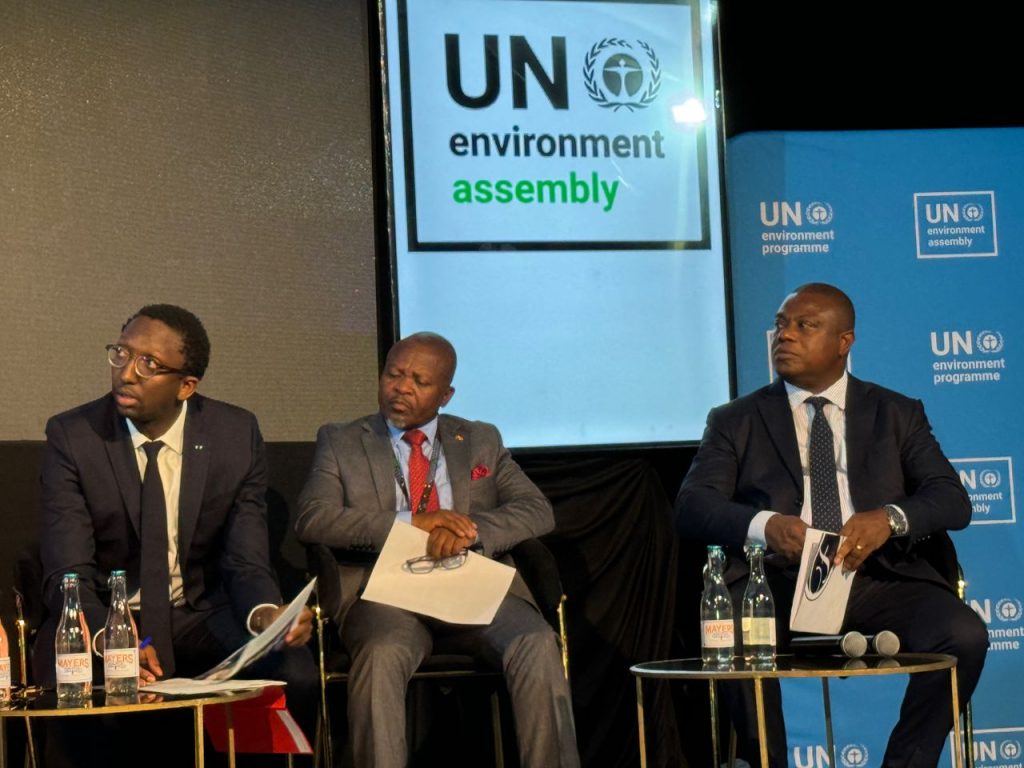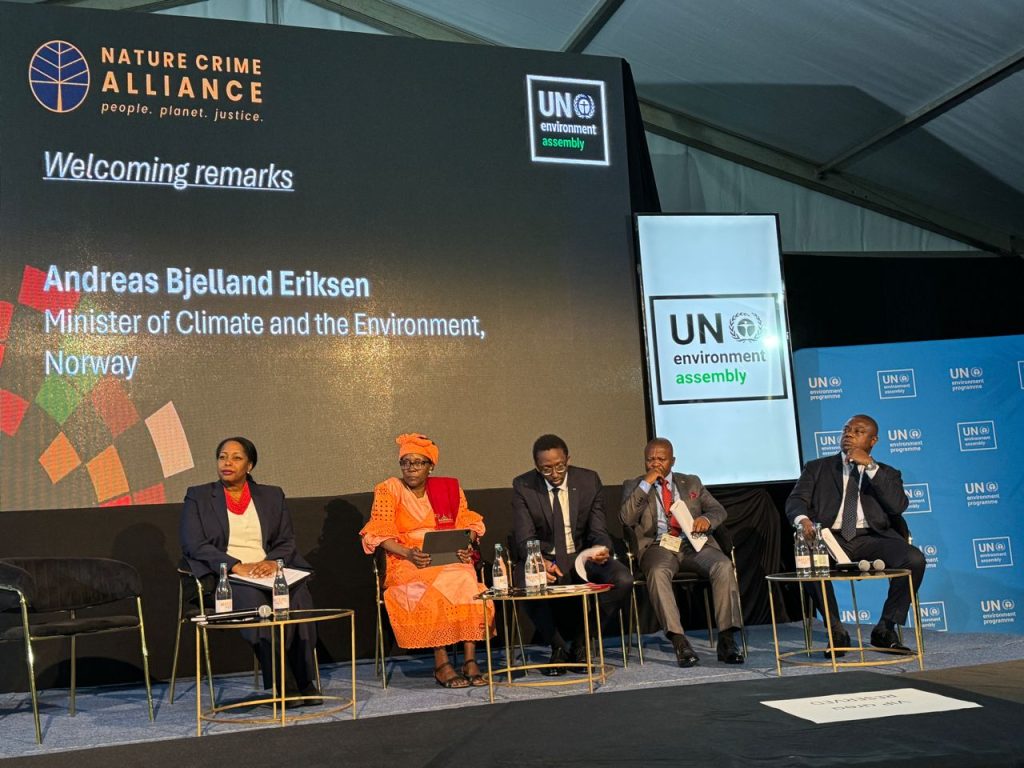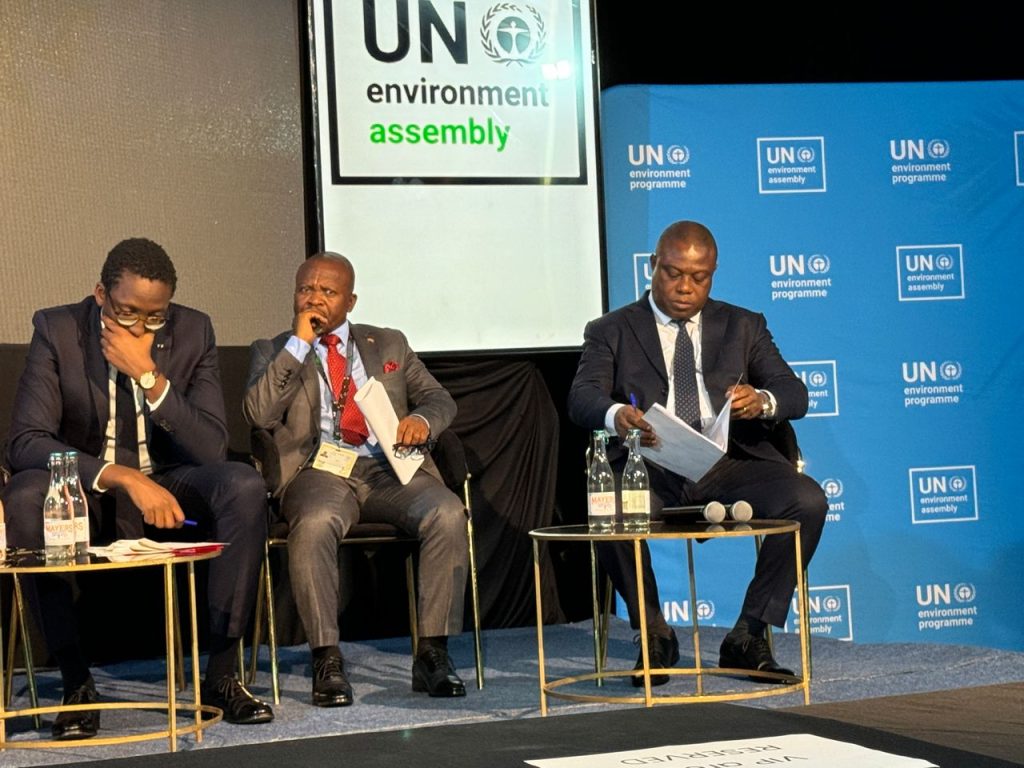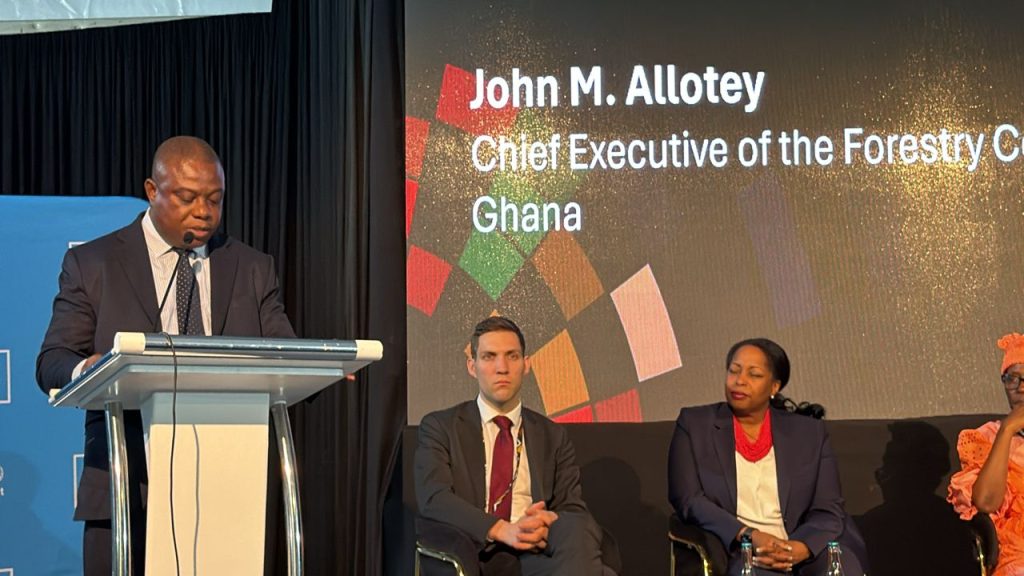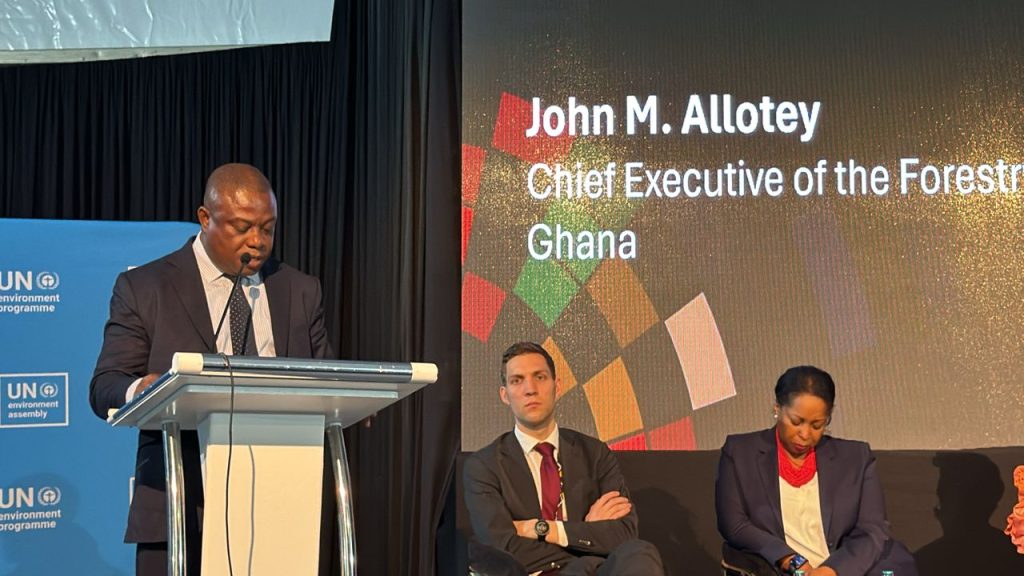Ghana, represented by the Chief Executive of the Forestry Commission, Mr John Allotey, has attended a high–level side event hosted by the Nature Crime Alliance at the Sixth Session of the United Nations Environment Assembly (UNEA-6), in Nairobi Kenya on 24th February 2024. At this event, Ghana’s membership of the Alliance was officially announced.
That was after Ghana was extended an invitation to join the Alliance through the Forestry Commission and was subsequently invited as a high–level participant at the side event.
Speaking at the event, Mr. Allotey acknowledged the profound significance of Ghana’s forests, aquatic, and natural heritage. He said,” For us, and many others, nature crimes are not just violations of law, but assaults on our future, threatening our environment, biodiversity, and the lives and livelihoods of millions of our people, while robbing us of the resources needed for development”.
He mentioned that over the years, the Forestry Commission has worked with local communities, the private sector, NGOs, CSOs and international partners on several critical initiatives to combat nature crimes. “At the heart of these initiatives, we have come to realize the power of local communities to help curb these crimes in collaboration with the Government. This power depends on the relative valuation of natural capital to support their livelihoods and be a means of a sustainable and integrated livelihood”, he said.
Mr. Allotey said Ghana’s active involvement in the Forest Carbon Partnership Facility (FCPF) and more recently, signing an Emissions Reduction Payment Agreement (ERPA) with the LEAF Coalition, are testaments to conscious engagements to address nature crimes with commensurate natural capital value. “We have actively worked on our timber traceability systems through the Voluntary Partnership Agreement to enhance governance, trade, and enforcement and all such efforts must be duly rewarded. All this experience is captured in our involvement also in the FCLP”.
He officially announced Ghana’s acceptance to join the Alliance and mentioned that to achieve impact at scale and realize our goal, countries such as Ghana that are actively working to reverse the trend of deforestation, forest degradation and other nature crimes, must be supported with the right homegrown and owned solutions. “Our voices must be recognized for what they represent and seek, to avert catastrophic climate change, which will destroy people and their natural environment. Combating nature crimes is within our reach, but how soon we succeed depends on the level of commitment we bring to the table”, he cautioned.
The side event highlighted the need for building bridges across disciplinary, geographic, and jurisdictional domains for better detecting and disrupting nature crime.
Speakers discussed challenges faced in tackling these crimes and presented best practices and initiatives that could be replicated or scaled up in other contexts. The Event aligned with the overarching theme of UNEA-6, “Effective, inclusive and sustainable multilateral actions to tackle climate change, biodiversity loss and pollution.” It promotes a collaborative multi-stakeholder approach, fostering dialogue among various stakeholders, and poses a range of opportunities designed to support and empower them in their fight against nature crime.
Nature Crime Alliance is a global, multi-sector network that raises political will, mobilizes financial commitment, and bolsters operational capacity to fight nature crime and the other international criminal activities with which it converges. Norway and the United States are co-chairs of the Steering Committee of the Alliance. The Alliance brings together diverse stakeholders from governments and non-government entities committed to halting nature crime. The Nature Crime Alliance participants include representatives from governments, law enforcement, international and civil society organisations, donors, front-line defenders including Indigenous Peoples and local communities, and the media. The Secretariat of the Alliance is hosted by WRI and supported by UNODC.
